Start to help people purchase desired products!
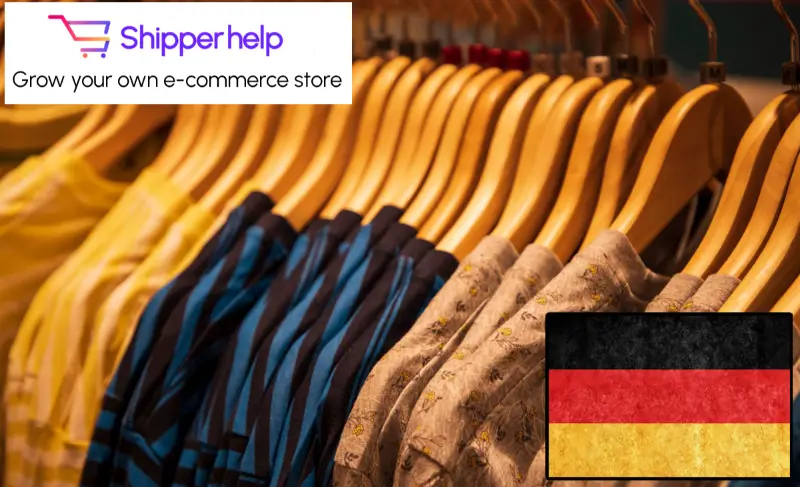
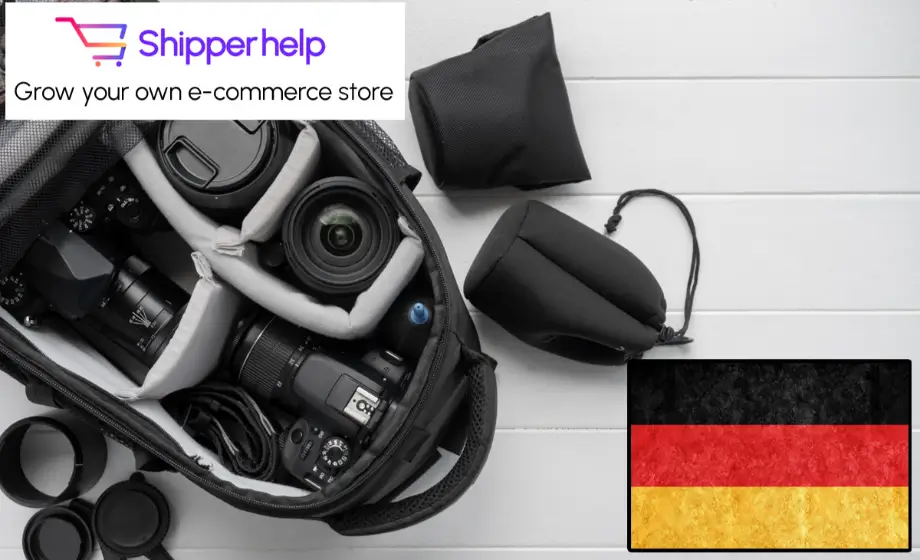
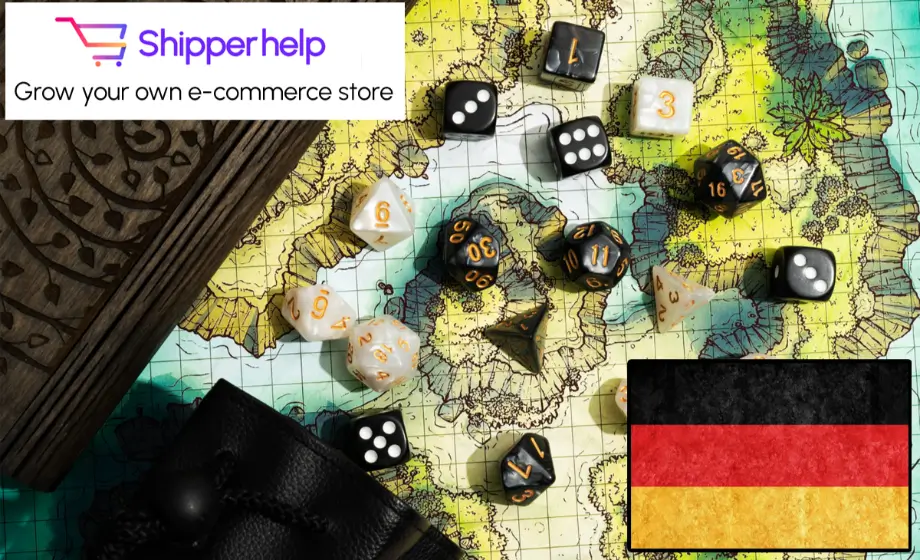

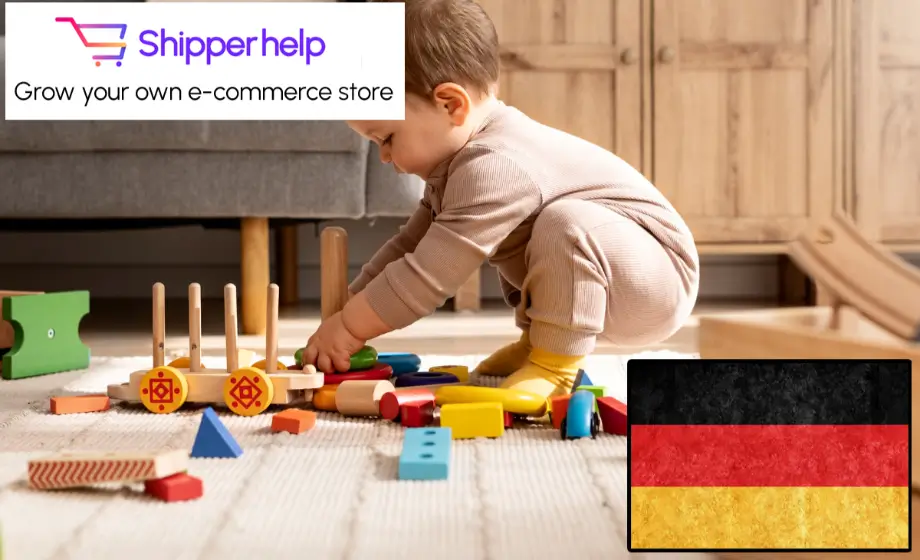
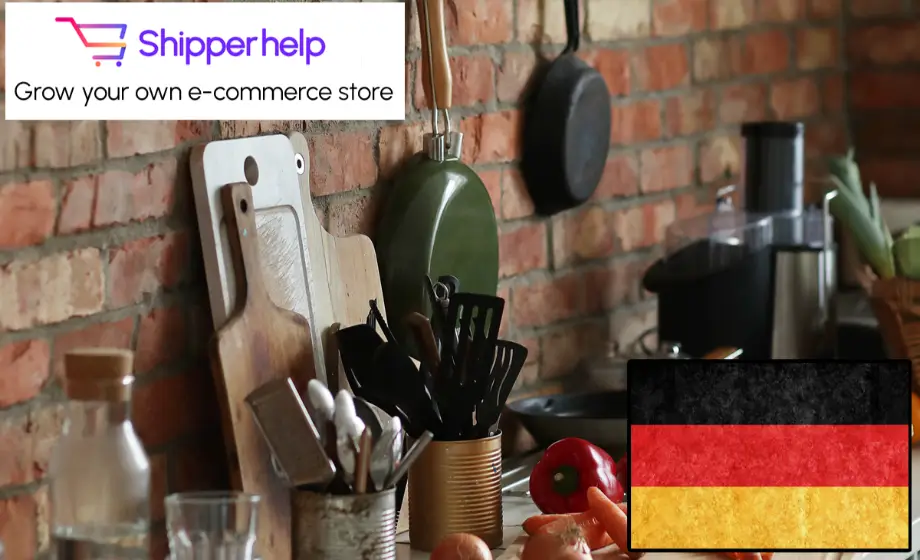
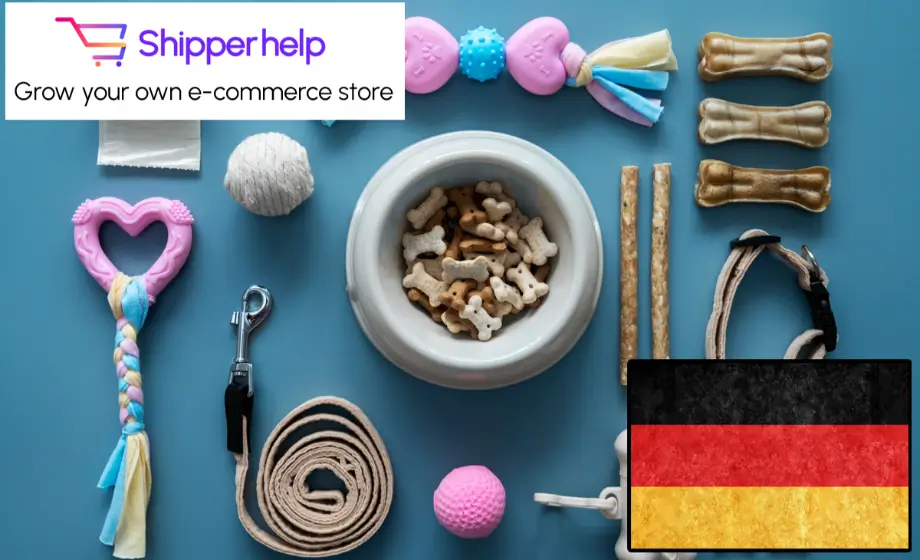

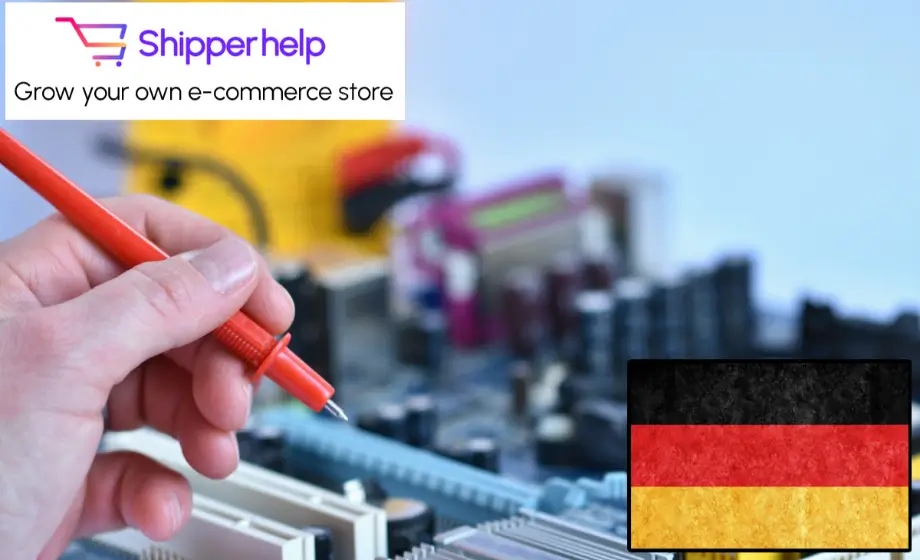
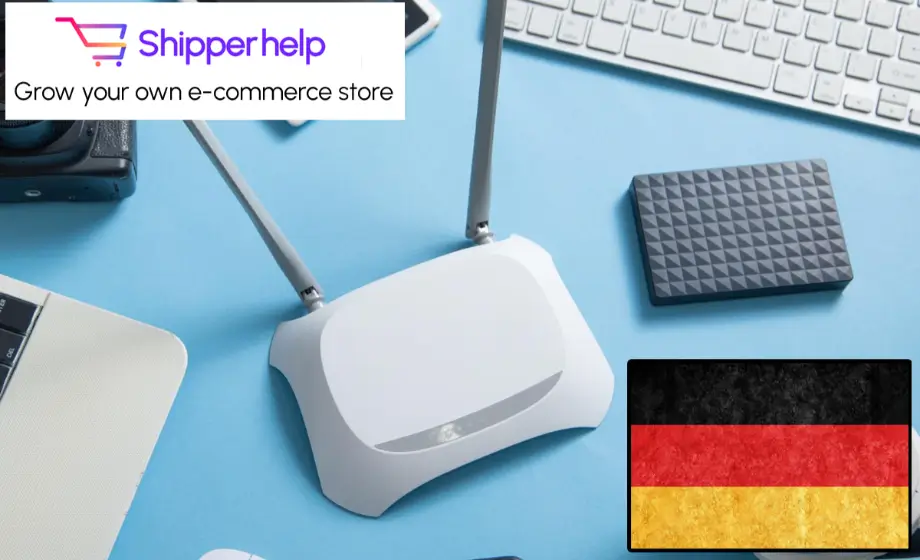
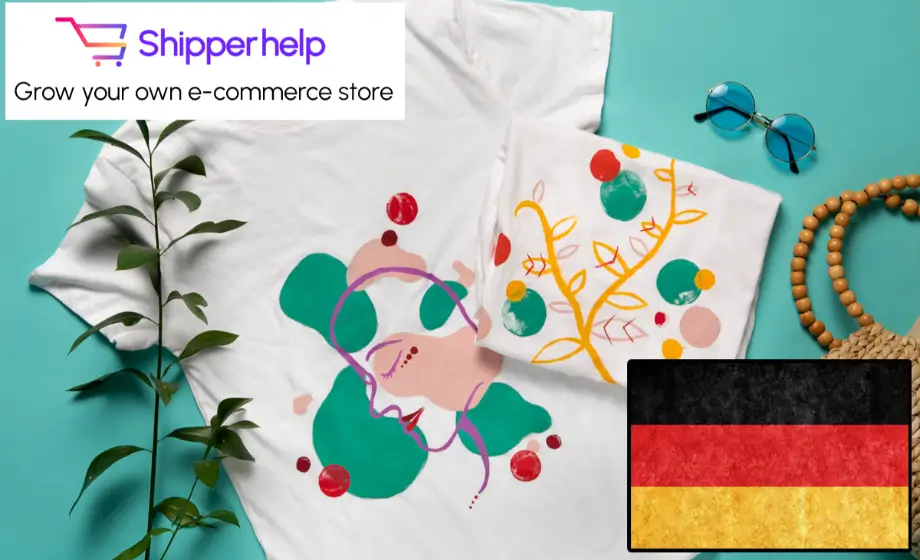
Obtaining a list of dropshipping suppliers is simple. After making a secure payment through online banking, you will immediately receive a link to download the list as pdf.
Here you can find the best products suppliers from Poland, suppliers from Turkey, suppliers from Germany, other Europe countries and around the world. Find yours and start selling in any niche.
Everything is neatly organized so you save time and money by only receiving a list of the suppliers you need. You don't have to browse between erotic suppliers if you own a children's toy store.
Our database has over 1000 suppliers including men's and women's clothing, footwear, children's products, electronics, household, garden, tourism, sports, animal products, and many more.
The list includes a large number of wholesale suppliers in addition to dropship suppliers. If you have enough money saved up, you can buy goods in bulk at a discount and sell them at a higher profit margin.
By agreeing with a particular supplier, you may be able to obtain higher discounts, thus earning a higher commission on sales, or you may be able to offer your customers to buy at competitive prices.
Finding reliable German suppliers for your business involves a strategic approach to sourcing that leverages both digital resources and traditional networking. Here’s a comprehensive guide to help you navigate this process effectively.
The German market is renowned for its quality products across various sectors, including automotive, electronics, machinery, and consumer goods. To tap into this rich vein of quality and innovation, start by researching the specific industry sectors relevant to your business needs. Familiarize yourself with market trends, regulations, and standards that define the German business environment.
Platforms like “Messe Frankfurt” or “Bauma” offer gateways to a vast network of German suppliers. These digital marketplaces and trade fairs provide comprehensive listings and the opportunity to directly interact with potential suppliers. They are instrumental in understanding the capabilities and reliability of various suppliers through firsthand experience and feedback from other businesses.
The German Chamber of Commerce and various industry-specific associations are invaluable resources for finding credible suppliers. They offer directories and support services for businesses looking to connect with German suppliers. Membership or engagement with these organizations can also provide networking opportunities, industry insights, and guidance on navigating the German market.
Before finalizing any supplier, conduct thorough due diligence to ensure their reliability and quality standards meet your requirements. This may include requesting samples, verifying certifications (such as ISO standards), and checking financial stability. References from current or past clients can also offer insights into the supplier’s reliability and performance.
Successful sourcing is not just about finding a supplier but also building a sustainable relationship. German business culture values trust and long-term partnerships. When negotiating terms, be clear about your expectations, but also show commitment to a mutually beneficial relationship. Understanding and respecting the cultural nuances of doing business in Germany can significantly impact the success of your negotiations.
Once you’ve established a relationship with a German supplier, utilize technology to manage and streamline your ongoing interactions. Tools for order management, communication, and quality control can help maintain the integrity of the supply chain. Regular visits and audits can further reinforce the relationship and ensure compliance with agreed standards.
The market and regulatory environment can change, affecting your supply chain. Stay informed about any changes in the German market or industry standards that could impact your suppliers. Being adaptable and maintaining open lines of communication with your suppliers can help mitigate risks associated with such changes.
In summary, finding reliable German suppliers requires a blend of thorough research, strategic use of networking platforms, diligent vetting, and fostering strong, respectful business relationships. Embracing technology and staying adaptable in the face of market changes will further ensure the longevity and productivity of these partnerships. By following these strategies, you can unlock the vast potential of the German market to benefit your business.
When it comes to sourcing products from Germany, you’re tapping into a country known for its precision engineering, quality manufacturing, and innovative design across various industries. Germany is renowned for producing a wide range of products, each with its own unique quality and market demand. Here’s a comprehensive breakdown of the types of products you can source from suppliers in Germany, along with some best strategies for doing so effectively.
Germany is synonymous with automotive excellence, being home to some of the world’s most iconic car brands like Mercedes-Benz, BMW, Audi, and Volkswagen. As a result, sourcing automotive parts and equipment from German suppliers can offer you access to top-quality components, ranging from engines and transmissions to electronics and advanced safety systems. Whether you’re looking for OEM parts or aftermarket accessories, German suppliers often prioritize precision engineering and reliability, making them a preferred choice for many automotive businesses worldwide.
Establish Direct Relationships: Building direct relationships with German automotive suppliers can provide you with better access to exclusive products and competitive pricing.
Attend Trade Shows: Participating in automotive trade shows such as Automechanika Frankfurt allows you to network with suppliers, stay updated on industry trends, and discover new products.
Utilize Online Platforms: Explore online B2B marketplaces like Alibaba, ThomasNet, or even specialized platforms like Automotive OEMs for sourcing automotive parts from Germany.
Germany is known for its robust manufacturing sector, producing a wide array of machinery and industrial equipment known for their durability, efficiency, and advanced technology. Whether you’re in need of CNC machines, industrial robots, or specialized manufacturing tools, German suppliers offer a diverse range of solutions to meet various industrial needs. From small and medium-sized enterprises to multinational corporations, Germany’s machinery sector caters to businesses across different industries worldwide.
Tap into Industry Associations: Joining industry associations like VDMA (Mechanical Engineering Industry Association) can provide you with valuable networking opportunities and access to a directory of reputable German machinery suppliers.
Explore Regional Clusters: Germany has several industrial clusters specializing in specific sectors like automotive, aerospace, or medical technology. Exploring these clusters can help you identify specialized suppliers catering to your niche requirements.
Engage in Supplier Audits: Conducting supplier audits ensures that you’re partnering with reliable suppliers who meet your quality standards and compliance requirements.
Germany boasts a strong presence in the electronics and technology sectors, renowned for its innovation, quality, and engineering expertise. From consumer electronics and home appliances to industrial automation and renewable energy solutions, German suppliers offer a wide range of electronic products known for their reliability and performance. Whether you’re sourcing components for electronic manufacturing or finished products for resale, Germany’s electronics industry provides ample opportunities for businesses seeking high-quality technological solutions.
Explore Trade Directories: Utilize trade directories like German Electronics Directory or IndustryStock to discover a vast network of electronic suppliers in Germany, ranging from small-scale manufacturers to large corporations.
Collaborate with Research Institutions: Germany’s strong focus on research and development makes it an ideal location for collaborating with universities and research institutions to access cutting-edge technologies and innovative products.
Consider Customization Options: Many German electronics suppliers offer customization services, allowing you to tailor products according to your specific requirements or market preferences.
Germany is not only a powerhouse in engineering and technology but also boasts a vibrant fashion and apparel industry. From luxury fashion houses to sustainable clothing brands, German suppliers offer a diverse range of fashion products catering to different styles and preferences. Whether you’re sourcing designer garments, footwear, or textiles, Germany’s fashion industry is known for its craftsmanship, attention to detail, and sustainable practices, making it an attractive sourcing destination for retailers and fashion businesses worldwide.
Attend Fashion Trade Fairs: Participating in renowned fashion trade fairs like Berlin Fashion Week or PREMIUM provides you with opportunities to connect with German fashion designers, manufacturers, and suppliers.
Embrace Sustainability: Germany places a strong emphasis on sustainability in the fashion industry, so partnering with eco-friendly suppliers can enhance your brand’s image and appeal to environmentally-conscious consumers.
Opt for Private Labeling: Many German fashion suppliers offer private labeling services, allowing you to create customized clothing lines tailored to your brand identity and target market.
Germany is famous for its culinary heritage, renowned for its traditional delicacies, gourmet specialties, and strict quality standards. German food and beverage suppliers offer a wide range of products, including gourmet foods, beverages, confectionery, and organic produce, reflecting the country’s rich culinary diversity. Whether you’re sourcing authentic German delicacies or specialty ingredients for your restaurant or retail business, German food suppliers prioritize freshness, authenticity, and traceability, ensuring that you deliver high-quality products to your customers.
Explore Food Expos and Trade Shows: Attend food expos like Anuga or Biofach to discover a diverse range of German food and beverage suppliers, network with industry professionals, and stay updated on emerging trends.
Partner with Regional Producers: Germany’s diverse regions boast unique culinary traditions and specialties, so partnering with regional food producers allows you to access authentic and artisanal products with distinctive flavors and characteristics.
Ensure Compliance with Regulations: When sourcing food and beverages from Germany, ensure that your suppliers comply with relevant food safety regulations, certifications, and labeling requirements to maintain product quality and regulatory compliance.
In conclusion, sourcing products from suppliers in Germany offers businesses access to a diverse range of high-quality products across various industries, including automotive, machinery, electronics, fashion, and food. By leveraging the best strategies outlined above, such as building direct relationships, attending trade shows, exploring industry associations, and embracing innovation and sustainability, you can effectively navigate the German sourcing landscape and unlock opportunities for growth and success in your business endeavors. Whether you’re a small-scale importer or a multinational corporation, Germany’s reputation for excellence, innovation, and reliability makes it a premier destination for sourcing quality products that meet your business needs and customer expectations.
The page on Shipper Help regarding suppliers from Germany provides access to lists of suppliers in various categories, such as perfume, beauty products, household appliances, furniture, lingerie, and car spare parts. These lists are available for purchase at discounted rates. Customer testimonials highlight the ease of finding and contacting suppliers, setting up e-shops, and the benefits of accessing well-organized, selective supplier information. Shipper Help also offers services for setting up online shops, including product import/export, translation, and shop maintenance.
Germany, with its robust economy and advanced logistics infrastructure, has become an attractive market for dropshipping businesses. Dropshipping allows entrepreneurs to sell products without holding inventory, with suppliers shipping directly to customers. This model reduces the barrier to entry for new businesses and enables swift adaptation to market trends.
German suppliers are renowned for their quality, efficiency, and reliability. They often offer a wide range of products across various industries, from automotive parts to luxury goods. Additionally, Germany’s strategic location in Europe ensures fast and efficient shipping across the continent, making it an ideal hub for dropshipping operations.
The process of finding trustworthy German dropshipping suppliers involves research and due diligence. Utilizing platforms like Shipper Help, which provides curated lists of suppliers, can simplify this process. Networking at trade shows, industry forums, and through business directories are also effective strategies.
While partnering with German suppliers offers numerous advantages, challenges such as language barriers, cultural differences, and understanding the legal and tax implications of doing business in Germany may arise. Overcoming these challenges requires thorough preparation and possibly seeking local legal and business advice.
As e-commerce continues to grow, the demand for dropshipping will increase. German suppliers are well-positioned to meet this demand, thanks to their high standards and strategic location. Businesses that establish strong relationships with German suppliers can leverage these advantages for long-term success.
Adopting the latest e-commerce and logistics technologies can streamline operations and enhance the customer experience. Tools for inventory management, order tracking, and customer communication are essential for running a successful dropshipping business.
Starting a dropshipping business with German suppliers can be a lucrative venture. By focusing on quality, efficiency, and strong supplier relationships, entrepreneurs can create a sustainable business model. Platforms like Shipper Help play a crucial role in connecting businesses with reliable suppliers, simplifying the process of building a successful dropshipping business.
In summary, German suppliers offer a unique combination of quality, efficiency, and product diversity, making them an excellent choice for dropshipping businesses. Through careful selection and fostering strong partnerships, businesses can tap into the vast potential of the German market for dropshipping success.
Germany’s pivotal role in global trade, coupled with its reputation for quality and innovation, offers compelling advantages for businesses looking to import goods. This detailed exploration highlights the diverse benefits, underpinned by insights from various sources, including the economic landscape, strategic benefits, and practical insights for businesses aiming to leverage German imports.
Germany stands out for its exceptional quality of goods and materials. Renowned for its rigorous quality control standards and technological innovation, the country specializes in products that often surpass local alternatives in quality. Importing from Germany enables access to these high-quality goods, enhancing your product offerings and satisfying customer demands for premium products.
Germany’s economy is characterized by its diversity, with leading positions in various industries such as automotive, machinery, electrical equipment, and pharmaceuticals. This diversity not only provides a wide array of products for import but also showcases Germany’s capability to cater to different market needs with products that are often at the forefront of technology and innovation .
Germany’s inclusion in the European Union and its participation in numerous EU trade agreements offer economic efficiencies. These agreements facilitate smoother and often more cost-effective import processes, enabling businesses to benefit from reduced tariffs and streamlined customs procedures .
Importing from Germany can significantly enhance your business’s competitive edge. Access to unique and high-quality German products can set your offerings apart in the local market, establishing your brand as a leader in quality and innovation. This differentiation is vital in today’s competitive environment, where quality and uniqueness can drive brand loyalty and customer preference.
Establishing a trustworthy and reliable supplier relationship is critical when importing from Germany. It involves thorough research and due diligence to ensure that suppliers can meet quality standards and delivery commitments. Utilizing resources such as trade fairs, online directories, and industry associations can aid in identifying reputable suppliers.
Importing goods from Germany necessitates a comprehensive understanding of legal and regulatory requirements, including import permits, safety standards, and customs regulations. Familiarizing yourself with these requirements and seeking professional advice can mitigate risks and avoid potential legal issues.
Importing from Germany offers a pathway to elevate your business’s product quality, innovation, and competitive standing. The strategic, economic, and practical benefits underscore the importance of considering Germany as a key source for imports. However, success in this endeavor requires careful planning, knowledge of the market, and an understanding of the regulatory landscape to maximize the benefits while minimizing potential challenges.
By leveraging the advantages that German imports offer, businesses can significantly enhance their value proposition, meeting and exceeding customer expectations in quality and innovation, ultimately driving growth and success in their respective markets.
When looking to connect with suppliers from Germany listed on ShipperHelp, start by exploring their profiles thoroughly. Suppliers typically include their contact information within their profiles, making it easy for potential clients to reach out to them. Common contact details include email addresses, phone numbers, and sometimes even direct messaging options within the platform.
Leverage ShipperHelp’s communication tools to streamline the process of contacting suppliers. Some platforms offer built-in messaging systems or contact forms that allow you to directly communicate with suppliers without having to resort to external email or phone channels. These tools often provide a convenient and efficient way to initiate conversations and exchange necessary information.
When reaching out to suppliers from Germany, it’s essential to personalize your communication. Avoid generic templates and instead tailor your messages to each supplier individually. Mention specific details from their profiles or recent projects to demonstrate your genuine interest in collaborating with them. Personalization not only makes your message stand out but also increases the likelihood of receiving a response.
Clearly articulate your requirements and expectations when contacting suppliers. Provide detailed information about the products or services you’re interested in, including quantities, specifications, and any specific customization needs. Clear communication helps suppliers understand your needs accurately, facilitating a more productive exchange and ensuring alignment from the outset.
Before reaching out, take the time to research the supplier’s background, reputation, and track record. Explore their previous work, client testimonials, and any available reviews to gain insights into their reliability, quality standards, and customer satisfaction levels. A thorough understanding of the supplier’s capabilities and reputation builds trust and confidence in the potential partnership.
Initiate a dialogue with suppliers to establish rapport and build a foundation for future collaboration. Beyond discussing business matters, take the opportunity to learn more about the supplier’s values, processes, and approach to customer service. Building a personal connection fosters trust and transparency, laying the groundwork for a mutually beneficial relationship.
Consider the timing of your outreach when contacting suppliers from Germany. Avoid peak business hours and busy periods when suppliers may be inundated with inquiries and less responsive. Instead, aim to reach out during quieter times to increase the likelihood of receiving a prompt and attentive response.
Don’t hesitate to follow up if you haven’t received a response from a supplier within a reasonable timeframe. Craft polite and concise follow-up messages to remind them of your initial inquiry and express your continued interest in collaborating. Persistence, coupled with professionalism, demonstrates your commitment and may prompt a response from the supplier.
Effectively contacting suppliers from Germany listed on ShipperHelp involves finding contact information, crafting personalized communication, building trust and rapport, and maximizing response rates through strategic timing and effective follow-up. By leveraging these strategies, you can establish meaningful connections with suppliers and lay the groundwork for successful collaborations.
German suppliers excel in the automotive industry, boasting world-renowned brands like BMW, Mercedes-Benz, Audi, and Volkswagen. These companies have set high standards for innovation, quality, and efficiency, which permeate through the entire supply chain. German automotive suppliers provide a wide range of components, from engines and transmissions to electronics and safety systems. Their expertise in precision engineering, advanced manufacturing techniques, and adherence to strict quality standards make them indispensable partners for global automotive manufacturers.
Germany is renowned for its precision engineering and machinery manufacturing. German suppliers lead in sectors such as machine tools, industrial automation, and robotics. Companies like Siemens, Bosch, and ThyssenKrupp are at the forefront of technological advancements, offering cutting-edge solutions for various industries worldwide. German machinery and equipment suppliers prioritize efficiency, reliability, and innovation, making them preferred partners for businesses seeking high-quality solutions.
German suppliers are prominent players in the electronics and electrical engineering sectors. Companies like Siemens, Bosch, and Infineon are renowned for their expertise in areas such as automation, renewable energy, and semiconductor technology. German electronic components and systems are known for their reliability, performance, and adherence to international standards. These suppliers leverage advanced research and development capabilities to deliver innovative solutions that meet the evolving needs of global markets.
Germany is a pioneer in renewable energy technologies, with a strong emphasis on sustainability and environmental responsibility. German suppliers lead in areas such as solar power, wind energy, and energy storage systems. Companies like SMA Solar Technology, Siemens Gamesa, and Enercon offer comprehensive solutions for renewable energy generation, distribution, and management. German suppliers leverage their expertise in engineering, manufacturing, and project management to drive the transition towards a cleaner, more sustainable energy future.
German suppliers are prominent players in the global chemical industry, offering a wide range of products and solutions for various applications. Companies like BASF, Bayer, and Evonik are renowned for their expertise in specialty chemicals, polymers, and materials science. German chemical suppliers prioritize innovation, sustainability, and safety, adhering to stringent regulatory standards while delivering high-quality products to customers worldwide.
Germany is home to a thriving pharmaceutical sector, with a strong focus on research, development, and manufacturing. German pharmaceutical suppliers produce a diverse range of products, including innovative drugs, generics, and medical devices. Companies like Bayer, Merck, and Boehringer Ingelheim are global leaders in pharmaceutical research and development, contributing to advancements in healthcare and medical technology. German pharmaceutical suppliers adhere to rigorous quality standards and regulatory requirements, ensuring the safety and efficacy of their products.
German suppliers are at the forefront of medical device manufacturing, offering innovative solutions for diagnosis, treatment, and patient care. Companies like Siemens Healthineers, B. Braun, and Carl Zeiss Meditec specialize in medical imaging, diagnostics, surgical instruments, and laboratory equipment. German medical device suppliers prioritize quality, precision, and patient safety, driving advancements in healthcare technology and improving clinical outcomes worldwide.
Germany boasts a robust healthcare system supported by a wide range of healthcare service providers. From hospitals and clinics to medical laboratories and rehabilitation centers, German healthcare suppliers offer comprehensive services aimed at promoting health and wellness. These suppliers prioritize patient-centered care, accessibility, and affordability, ensuring that individuals receive high-quality healthcare services tailored to their needs.
German suppliers excel across various industries, leveraging their expertise in engineering, technology, and innovation to deliver high-quality products and solutions to global markets. Whether in automotive manufacturing, machinery and equipment, electronics, chemicals, pharmaceuticals, healthcare, or renewable energy, German suppliers set the standard for excellence, reliability, and sustainability. Businesses seeking reliable partners for their supply chain can benefit greatly from collaborating with German suppliers, who offer a unique blend of quality, efficiency, and innovation.
Germany is renowned for its high-quality products, engineering excellence, and rigorous manufacturing standards. However, ensuring the quality of products when sourcing from Germany requires a strategic approach. This guide outlines key steps and considerations to maintain quality assurance throughout the sourcing process.
German Quality Certifications: Familiarize yourself with Germany’s quality certifications, such as ISO standards and the TÜV mark. These certifications are indicators of a manufacturer’s commitment to quality and compliance with international standards.
Direct Communication: Establish clear communication channels with your suppliers. Understand their production processes, quality control measures, and capacity to meet your requirements. Face-to-face meetings, when possible, can strengthen business relationships and provide deeper insights into their operations.
Due Diligence: Before committing, conduct comprehensive research on potential suppliers. This includes evaluating their financial stability, reputation in the market, and previous client testimonials. Utilize platforms like ShipperHelp to access curated lists of reputable suppliers from Germany.
Third-Party Inspections: Consider employing third-party quality assurance services to conduct on-site inspections. These services can verify the quality of the manufacturing process, adherence to specifications, and final product checks before shipment.
Digital Quality Management: Utilize digital tools and platforms for quality management. These can help track production progress, manage quality control documentation, and facilitate real-time communication with your suppliers.
Prototype Evaluation: Before placing a large order, request samples or prototypes to assess the quality and ensure the product meets your specifications. This step can prevent misunderstandings and costly mistakes in the long run.
Compliance with European Standards: Ensure that the products comply with relevant EU regulations and standards. This includes safety, environmental, and health standards that are particularly stringent in Germany and the EU.
Contractual Agreements: Develop detailed contracts that include quality requirements, delivery schedules, payment terms, and conditions for non-compliance. This legal framework will protect your interests and ensure supplier accountability.
Feedback Loops: Establish mechanisms for ongoing feedback and continuous improvement with your suppliers. Regular reviews can help identify issues early and foster a culture of excellence and innovation.
Partnership Approach: View your suppliers not just as vendors but as partners in your business’s success. A collaborative approach can motivate suppliers to maintain high-quality standards and align with your business goals.
Sourcing from Germany offers access to world-class products and innovative solutions. By implementing rigorous quality assurance measures, conducting thorough research, and fostering strong supplier relationships, businesses can ensure the quality of their sourced products. Leveraging resources like ShipperHelp.com for supplier insights and adhering to best practices in quality management will pave the way for successful sourcing ventures in Germany.
The Foundation of Negotiation Before initiating negotiations with German suppliers, it’s essential to understand their business culture. Germany values punctuality, directness, and efficiency. Building a relationship based on trust and respect is crucial. Start by doing thorough research on the supplier you’re interested in, understanding their business ethos, and preparing your negotiation strategy accordingly.
Initial Contact and Relationship Building Making a good first impression is key when reaching out to German suppliers. Be punctual for meetings, whether online or in person, and ensure your communication is clear and to the point. Show respect for their time and expertise by being well-prepared and informed about their products and services.
Leverage Market Insights for Better Deals Understanding the market in which the German supplier operates can give you an edge in negotiations. Conduct comprehensive market research to know the standard pricing, quality expectations, and delivery timelines. This knowledge will not only help you in negotiations but also in ensuring that the supplier’s offerings align with your business needs.
Effective Techniques for Negotiating Prices When negotiating prices with German suppliers, clarity and strategy are vital. Be upfront about your expectations but also realistic. Use the data from your market research to justify your negotiation stance. Consider discussing long-term business potential as German suppliers value stable, ongoing business relationships over one-time deals.
Focusing on Total Value While price is a significant factor, consider other aspects such as quality, delivery timelines, and payment terms. Sometimes, securing favorable terms in these areas can be more beneficial than a lower price. Discuss how a partnership could evolve, emphasizing mutual growth and success.
Maintaining Open Lines of Communication Effective communication does not end with the negotiation. Keep the lines of communication open by providing feedback, updating on market changes, or discussing future business prospects. Regular interaction can lead to better understanding, improved cooperation, and potentially more favorable terms in the future.
When to Bring in Experts If negotiations become challenging or you’re dealing with a large, complex deal, consider hiring a professional negotiator. This can be particularly useful if you’re unfamiliar with German business practices or the specific industry. Professionals can navigate the negotiation process efficiently, often achieving better terms.
Reflect and Adapt for Future Negotiations Every negotiation is a learning opportunity. After concluding negotiations, reflect on what worked well and areas for improvement. This introspection can refine your negotiation skills and strategies, making future dealings with German suppliers or others more successful.
Understanding Contracts and Agreements In Germany, contracts are taken very seriously. Ensure you understand every aspect of the contract or agreement before signing. It might be beneficial to consult with a legal professional, especially if you’re unfamiliar with German commercial law, to avoid any potential issues down the line.
Aligning with Sustainable and Ethical Values German companies are increasingly focusing on sustainability and ethical practices. Demonstrating your commitment to these values can strengthen your negotiation position, especially if you propose long-term partnerships that align with these principles.
Negotiating better prices with German suppliers involves understanding their business culture, conducting thorough market research, and applying strategic negotiation techniques. Focusing on building a strong relationship and looking beyond just the price to the total value of the deal can lead to more successful outcomes. Always remember to communicate effectively and consider legal and ethical aspects to ensure a mutually beneficial agreement.
When considering shipping options for goods from Germany, it’s crucial to recognize the various modes available, each with its own benefits and considerations. The primary methods include sea freight (both Full Container Load or FCL, and Less than Container Load or LCL), air freight, and express courier services. These modes cater to different needs based on volume, speed, and cost.
FCL shipping means your goods fill an entire container, offering a cost-effective solution for large volumes. In contrast, LCL is suitable for smaller shipments that don’t require a full container, though it might involve longer transit times due to additional handling.
Air freight offers a faster alternative to sea freight, ideal for urgent shipments. Although typically more expensive than ocean shipping, it provides a viable option for time-sensitive goods, balancing cost with speed.
Express services, facilitated by carriers like DHL, FedEx, and UPS, provide the quickest shipping options. While this method comes at a premium, it’s unparalleled for urgent or valuable shipments, offering extensive tracking and security features.
Ensuring your shipment is covered by insurance is pivotal, offering peace of mind against the unforeseen. Moreover, robust tracking capabilities are essential for maintaining visibility and managing customer expectations throughout the shipment’s journey.
Understanding and anticipating customs duties and taxes is vital for a smooth shipping experience to Germany. Familiarize yourself with German customs regulations and utilize shipping calculators to estimate potential costs, avoiding surprises.
Shipping options range from standard to express delivery, each offering different price points and delivery timelines. Standard delivery is the most cost-effective, while express delivery ensures the fastest arrival, critical for time-sensitive goods.
For smaller shipments, air freight might offer a balance between speed and cost. However, for larger volumes, sea freight, especially FCL, becomes more economical. Consolidating shipments can further reduce costs, leveraging bulk rates and minimizing individual handling fees.
Selecting the right shipping option from Germany involves balancing factors such as cost, speed, volume, and urgency. Whether opting for sea freight, air freight, or express courier services, consider additional aspects like insurance, tracking, customs duties, and delivery options to ensure a seamless and cost-effective shipping process. By understanding these dynamics, businesses can make informed decisions that align with their logistical needs and customer expectations.
In the dynamic world of global trade, language plays a pivotal role in shaping interactions between buyers and suppliers. When it comes to dealing with German suppliers, one might wonder about the potential language barriers. Germany’s robust economy, technological advancements, and quality standards make it a sought-after partner for international business. However, the question remains: Are language barriers significant when communicating with German suppliers?
Fortunately, the business sector in Germany is highly internationalized, with a substantial number of companies having global operations. This international presence has made English a common language of communication within the business community. Many German suppliers are accustomed to dealing with international clients and have staff proficient in English to facilitate smooth interactions. This bilingual capability ensures that language barriers are minimized when negotiating, placing orders, or seeking support.
Despite the widespread use of English, there are scenarios where communication in German could be more effective, especially in legal documents, technical specifications, or when dealing with smaller, regional suppliers. In such cases, leveraging translation services or multilingual communication tools can bridge the gap. Digital platforms and translation software have made it easier than ever to overcome language barriers, allowing for accurate and efficient communication between parties.
Beyond language proficiency, understanding German business culture is crucial for a fruitful relationship with suppliers. Germans are known for their punctuality, attention to detail, and direct communication style. Respecting these cultural nuances can significantly enhance business interactions. A basic understanding of German business etiquette, such as formal greetings and adherence to agreements, can also pave the way for a successful partnership.
For critical negotiations, contracts, or technical discussions, it might be beneficial to engage professional translation services. Professional translators with expertise in business and technical language can ensure that both parties fully understand the terms, conditions, and specifications involved. This is particularly important for legal documents, where precision in language is paramount to avoid misunderstandings or liabilities.
Investing in language training for your team could be a long-term strategy to mitigate language barriers. Offering English or German language courses to staff can enhance communication skills and foster a deeper understanding of cultural nuances. This not only improves interactions with German suppliers but also enriches the team’s global competency, benefiting the business in all international dealings.
Technology plays a significant role in bridging language divides. Real-time translation apps, language learning platforms, and communication tools with built-in translation features have made it easier to navigate language differences. These technological solutions can facilitate smoother communication, reduce misunderstandings, and speed up negotiation processes.
Ultimately, successful business relationships transcend language barriers. Building trust, demonstrating reliability, and maintaining open communication are fundamental to establishing strong connections with German suppliers. Language proficiency is undoubtedly beneficial, but the willingness to understand and adapt to each other’s business culture is equally important.
In conclusion, while language differences exist, they are not insurmountable barriers when dealing with German suppliers. The widespread use of English in the German business sector, combined with the availability of translation tools and services, makes it possible to maintain effective communication. Furthermore, an appreciation for cultural nuances and investment in relationships can overcome any linguistic hurdles, paving the way for successful international collaborations.
Navigating the customs and import regulations for German products is crucial for businesses looking to import goods into Germany. This comprehensive guide covers the essential aspects of German customs and import regulations, ensuring a smooth and compliant import process.
Commercial Invoice and Packing List: The commercial invoice and packing list are fundamental documents in international trade, serving as a record of the transaction and a detailed list of the shipment contents, respectively .
Certificate of Origin: This document states the country where the goods were produced, influencing the customs duties and trade agreements applicable to the shipment .
Bill of Lading and Import Licences/Permits: The bill of lading acts as a receipt and contract for the carriage of goods, while certain goods may require specific import licences or permits .
Customs Declarations: Importers must submit detailed customs declarations electronically or on paper, including information about the goods, their value, and origin.
Inspection and Verification: German customs may conduct physical inspections to verify the accuracy of declared information, focusing on high-risk shipments based on various criteria .
Customs Duties: These are calculated based on the Harmonised System (HS) code of the goods, taking into account the customs value, which includes the price paid for the goods plus additional costs up to the point of entry into Germany .
VAT: The Value Added Tax in Germany is generally 19%, applied to the total value of the goods, including customs value and duties .
Intellectual Property Rights and Licensing: It’s important to ensure that imported goods do not infringe on intellectual property rights and have the necessary licensing if applicable .
Environmental Laws and Product Safety: Adhering to Germany’s environmental laws and ensuring product safety and compliance with industry standards are critical to avoid legal issues .
Import Licensing and Customs Compliance: Certain products may be subject to restrictions or require specific licences. Accurate and complete customs declarations are essential for a smooth customs process .
Customs Threshold and Average Customs Duty: Germany, as part of the EU, applies a common customs tariff. Duties range from 0-17%, with some sectors experiencing higher protection measures.
Importing goods into Germany requires thorough preparation and understanding of customs regulations, from documentation and declarations to duties calculation and legal compliance. Ensuring that all procedures are correctly followed can significantly simplify the import process, allowing businesses to focus on expanding their operations in the German market.
When engaging with German suppliers, comprehending the accepted payment methods is crucial for establishing smooth and trustworthy transactions. The landscape of payment preferences in Germany is diverse, reflecting the country’s sophisticated financial systems and the consumers’ penchant for security, convenience, and financial prudence.
Online payment services, such as PayPal, Amazon Pay, and mobile payment apps, are immensely popular in Germany, partly due to their convenience and security features. These services cater to German consumers’ concerns about data privacy and fraud, providing a quick and easy way to make payments and transfers.
Invoices play a significant role in the German online payment market, with a considerable portion of consumers preferring this method. It allows consumers to receive goods before making a payment, offering a trial period typically ranging from 14 to 28 days. This method is particularly appealing because it eliminates the need for upfront payment and sensitive data entry during the purchase process.
Direct debit enjoys popularity for its convenience, especially for automating recurring payments. It’s cost-effective for businesses due to lower transaction fees compared to credit card payments and is noted for its security and widespread acceptance.
Debit cards, including Germany’s Girocard, are favoured for providing instant access to funds and financial control. They facilitate a wide range of transactions without exposing users to potential debt.
Although credit cards like Visa and MasterCard are available, their usage is less common compared to direct debit and debit card transactions. This tendency stems from a conservative approach to spending, where Germans prefer to avoid accumulating debt. Prepaid cards and vouchers, offering controlled spending limits, cater to those wary of overspending and debt.
Cash in advance and cash on delivery are less frequently used but remain relevant for consumers who prioritize a conservative approach to online and offline purchases. These methods underscore the importance of trust in transactions, allowing for payment upon delivery or inspection of goods.
The German payment market also recognizes the value of various online banking and “shop now, pay later” methods such as SOFORT, ELV, SEPA Credit Transfers, Giropay, Klarna, Ratepay, and Paydirekt. These methods underscore the importance of flexibility and consumer choice in the payment process, aligning with the German market’s preferences for security, convenience, and financial management.
For businesses looking to engage with German suppliers or consumers, understanding these payment preferences is essential. Offering a range of payment options can significantly enhance customer satisfaction and conversion rates. It’s crucial to tailor payment solutions to match the market’s preferences, ensuring transactions are smooth, secure, and aligned with consumer expectations.
Navigating the diverse payment landscape in Germany requires a strategic approach, prioritizing security, convenience, and flexibility to meet the nuanced demands of German consumers and suppliers alike.
Find out what other people think
As a boutique owner, I'm always looking for high-quality, unique beauty products. The German suppliers list from Shipperhelp introduced me to some fantastic brands I now proudly stock. My customers are thrilled, and so am I. Un grand merci à Shipperhelp!.
Purchased: Perfume and beauty products suppliers information from Germany
Absolutely thrilled with the Dropshipping list from Poland I got from Shipperhelp! It was my first foray into e-commerce, and this list made it so easy to start. Found some incredible suppliers with unique products that really stand out. My store's getting great traffic thanks to this. Highly recommend.
Purchased: Various suppliers information (Dropshipping) from Poland
Finding reliable electronics suppliers can be daunting. Shipperhelp's list was a game-changer for me. High-quality suppliers with a wide range of products at competitive prices. My tech store's inventory has never looked better
Was skeptical at first about buying a suppliers list online, but Shipperhelp's furniture list from Poland was a pleasant surprise. Found exactly what my store needed - quality furniture at good prices. Easy process, great results.
Purchased: Furniture suppliers information from Poland
Expanding my gift shop's inventory with unique items was easy with Shipperhelp's Polish suppliers list. Exceptional variety and creativity in products. My sales have gone up. Serdecznie dziękuję, Shipperhelp!
Purchased: Gifts and souvenirs suppliers information from Poland
Finding top-notch organic suppliers was crucial for my health-focused e-commerce. The Polish suppliers list from Shipperhelp was a goldmine of quality and reliability. My customers are delighted with the variety and quality. Shipperhelp is an invaluable resource
Purchased: Organic food and supplement suppliers information from Poland
Finding safe and educational toys for my online store was a priority. The Polish suppliers list from Shipperhelp offered just that. Quality toys that parents trust and kids love. Suur tänu, Shipperhelp, for making this possible
Purchased: Kids toys suppliers information from Poland
Expanding my pet store with unique and quality products was made easy with the Turkish suppliers list from Shipperhelp. Our furry friends and their owners are thrilled. Shipperhelp is fantastic selection
Introducing luxury German beauty products into my boutique significantly uplifted my brand. Shipperhelp's suppliers list was key to sourcing these high-quality items. My customers love the new range. Didelis ačiū
Purchased: Perfume and beauty products suppliers information from Germany
Simply fill out the inquiry form, and one of our specialists will contact you with a customized offer and answers to all your questions. Get a professional online store with all needed integrations! We also provide product import / export from XML or other files, product translation and shop maintenance services.
Enter your email below to get news about the latest shipping lists and interesting insights.